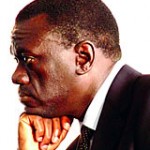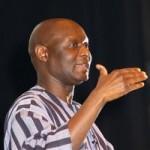IPC alliance divided over 2011 polls strategy
By Dennis Otim – 9th-15th Aug 2010
The Inter Party Cooperation [IPC], a loose alliance between Ugandan opposition parties FDC, UPC, Jeema, and CP is split right through the middle on the question of whether or not to boycott, postpone, or participate in the 2011 elections.
Recent statements issued by both FDC President Dr. Kizza Besigye and UPC President Dr. Olara Otunnu clearly suggest that at best, their 2011 strategy is not yet crystallised and settled. At worst, there may be deep seated individual party interests between the IPC partners that make it difficult for them to agree on a unified strategy. These interests could, for example, be every party’s need to build its capacity and national support base for life in a more democratic post-Museveni Uganda.
While appearing on VOA’s Straight Talk Africa programme together with Major General Kahinda Otafire [on phone from Turkey], UPC President Olara Otunnu reiterated the IPC’s determination to ensure that the present Kiggundu-led Electoral Commission is disbanded before the next elections. “Take it from me. We are not going to allow the present Electoral Commission to organise the next elections”; Otunnu responded to probing by the show’s host Dr. Shaka Ssali, a US based Journalist of Ugandan origin.
President Yoweri Museveni has however ruled out disbanding the present Electoral Commission. That then leaves the IPC with only two options: To either boycott or participate in the 2011 elections. And it is here that the differences in strategy have emerged.
While addressing UPC party faithful at Kaunda Ground in Gulu Municipality for example, UPC President Dr. Olara Otunnu won prolonged applause from his listeners when he declared that “…UPC will not boycott the coming elections. We shall participate, win, and kick Museveni out of power”; Otunnu further declared.
Which then begs the question: If Museveni has rejected calls to disband the present Electoral Commission, is Otunnu’s UPC now prepared to participate in elections that will be organised by the present Electoral Commission that he told Shaka Ssali will not be allowed “to organise the next elections”?
FDC, the other key stakeholder in the IPC on the other hand, seems to be holding a much consistent and perhaps even harder stance towards the next general elections. FDC President Dr. Kizza Besigye has previously maintained that the Kiggundu-led EC will not be allowed to organise the next elections. He threatened to mobilise Ugandans to march to the EC offices on Jinja Road in Kampala to kick out EC Boss Eng. Badru Kiggundu and his team.
Last week, however, there appeared to be a change of tone from FDC. Dr. Kizza Besigye, while addressing FDC supporters in Hoima who were protesting the continued stay in office of the present EC, said “…we would rather have the elections postponed for a few months than have them presided over by Kiggundu’s team”.
A day later, FDC Spokesman Wafula Oguttu echoed the same sentiments during a press conference at FDC headquarters in Najjanankumbi on Entebbe road. Finally, the Saturday Monitor of 7th August quoted FDC President Dr. Kizza Besigye [flanked by key IPC personalities Ken Lukyamuzi and UPC Secretary General Joseph Bossa] saying the IPC will participate in the 2011 elections.
The question on the lips of many Ugandans is therefore this: Is the IPC’s position to boycott, argue for postponement, or actually participate in the February 2011 general elections that will be organised by the Kiggundu-led EC? Uganda Correspondent’s request for a comment on the subject from IPC Spokesman Semujju Ibrahim Nganda was by press time yet unanswered.
![]()



